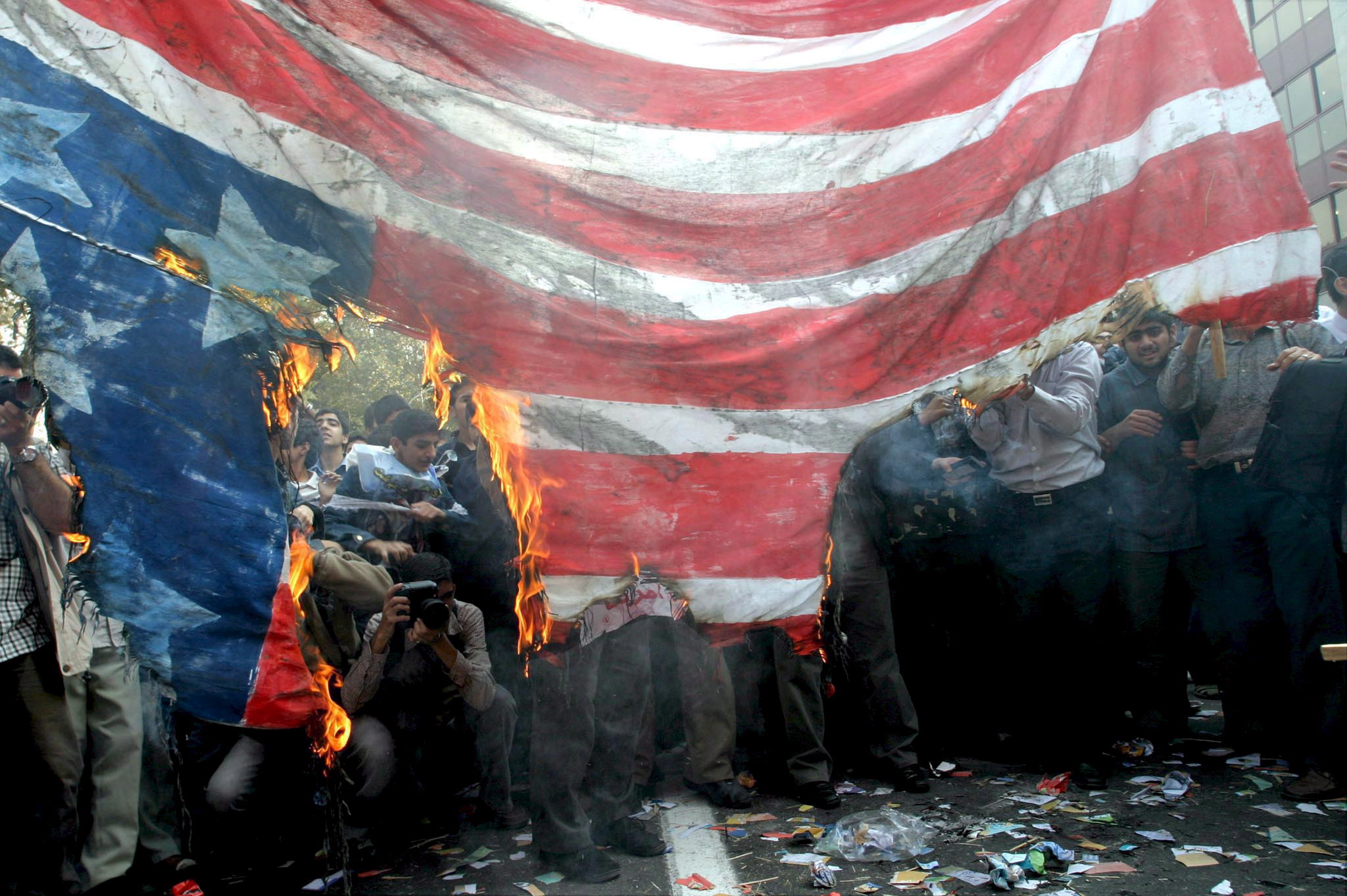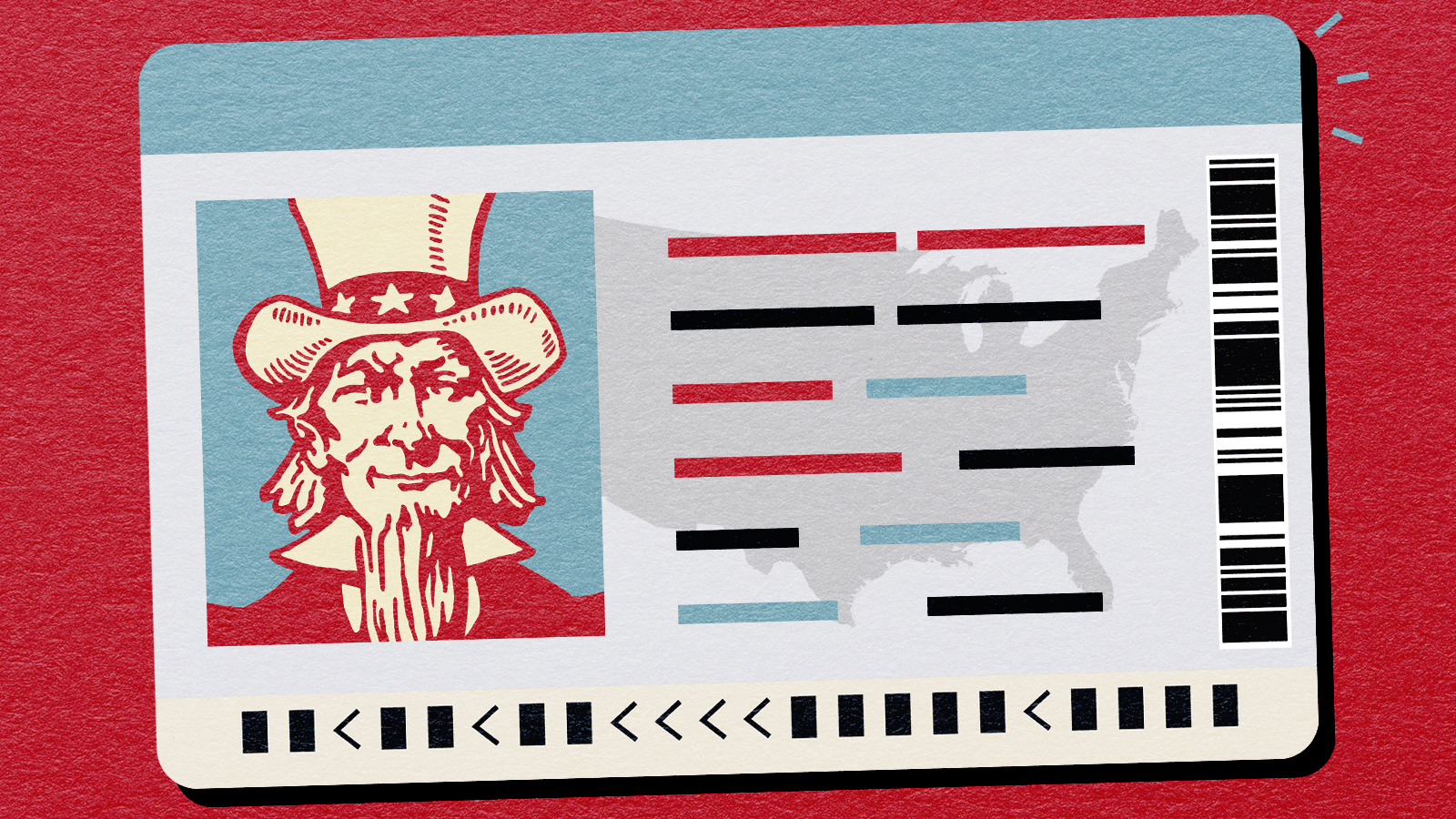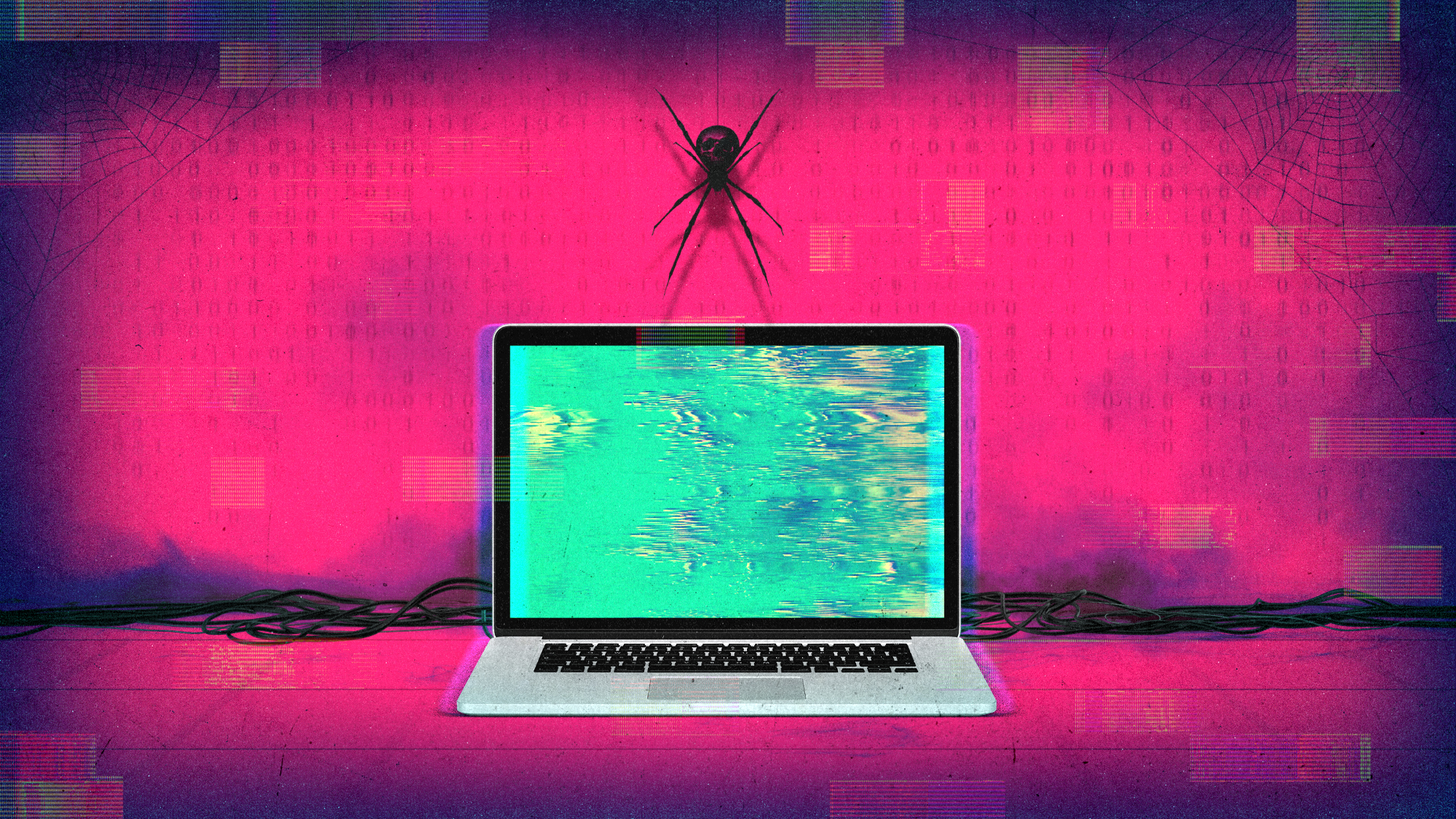The struggle inside Iran
Since the nuclear deal was signed in July, Iran has grown more hostile to the U.S., not less. Why?

Since the nuclear deal was signed in July, Iran has grown more hostile to the U.S., not less. Why? Here's everything you need to know:
What is happening in Iran?
A power struggle that could define the country's future. The nuclear deal with the U.S. and five other world powers was a major victory for moderate Iranian leaders, particularly President Hassan Rouhani. He and other moderates have desperately sought a lifting of the economic sanctions that have crippled Iran's economy and isolated the country from the world. But the deal was strongly opposed by the hard-liners who dominate the military, the Revolutionary Guards, and the powerful Guardian Council. Iran's Supreme Leader, Ayatollah Ali Khamenei, reluctantly approved the agreement to get relief from the crippling sanctions, probably because he feared that hardship among the Iranian people could eventually lead to a popular uprising. But the moment the deal was signed, Iran's attitude toward the U.S. became even more overtly hostile.
Subscribe to The Week
Escape your echo chamber. Get the facts behind the news, plus analysis from multiple perspectives.

Sign up for The Week's Free Newsletters
From our morning news briefing to a weekly Good News Newsletter, get the best of The Week delivered directly to your inbox.
From our morning news briefing to a weekly Good News Newsletter, get the best of The Week delivered directly to your inbox.
What has Iran done?
Iran has test-launched a medium-range ballistic missile that the U.S. says is banned, and it has dramatically increased its military support for the murderous regime of Syrian President Bashar al-Assad. Several Americans and Iranians with ties to the U.S. have been arrested, and Washington Post reporter Jason Rezaian was convicted of espionage after spending 16 months in jail on trumped-up charges. A domestic crackdown is also underway: In the past month, at least five Iranian journalists have been arrested for criticizing the regime, and the judiciary said they were part of an "infiltration network affiliated with the U.S. and U.K. governments." Against this backdrop, Khamenei has stepped up his anti-American rhetoric and banned any talks with the U.S. on any subject other than the nuclear deal. "The slogan ‘Death to America' is backed by reason and wisdom," Khamenei recently said. "They wouldn't spare a moment if they could destroy the Islamic Republic, but they can't."
Why is Khamenei taking this tack?
President Obama had hoped that striking a nuclear bargain with Iran would pave the way to open up the country economically and politically. The more trade and contact that young Iranians have with the West, the administration believes, the harder they'll push for a more liberal, democratic society. Khamenei wants to prevent that at all costs, and keep power centralized among the ayatollahs. "Khamenei is pre-empting any possible attempt to improve the official image of the U.S., which would threaten his and the regime's identity," said Cliff Kupchan, an Iran specialist. The Supreme Leader's pushback is getting the full support of the Islamic Revolutionary Guard Corps.
What stake do the Guards have?
The IRGC, an elite security force of 120,000, has amassed a business empire worth hundreds of billions of dollars — so it wants the status quo preserved. During the eight years under Rouhani's hard-line predecessor, Mahmoud Ahmadinejad, the Guards privatized some of Iran's biggest businesses. Their affiliated companies now include the major telecom company, which brings in tens of billions of dollars a year, as well as energy and construction firms that run pipelines and irrigation networks and build dams and mines. They even control imports on consumer and luxury goods, like cars, as well as much of the banking sector. In order to fend off political change and reform, they have been portraying Rouhani as a Western stooge. Gholam-Ali Haddad Adel, a senior adviser to Khamenei whose daughter is married to the ayatollah's son, recently said he was "concerned about some officials opening the way for U.S. influence in Iran" — a rebuke clearly aimed at Rouhani.
How has Rouhani reacted?
Very judiciously; he is a pragmatic reformer and an astute politician, but not a revolutionary. A high-ranking cleric himself, he ran for president in 2013 to bridge the gap between the religious hard-liners and the reform camp. He supports more press freedom and more engagement with the international community, and he has gently criticized the recent wave of arrests of journalists and human rights activists. "Let us not go and arrest one person here, another there, without any reason," he said, "and then make up a case and say this is an infiltration movement."
What's the next step of this struggle?
Elections are coming up in February for both the Iranian Parliament and the Assembly of Experts, a powerful clerical body. Khamenei, 76, has been ill, and the next Assembly of Experts will probably seek to appoint his successor. The hard-liners are trying to ensure that both bodies are packed with their supporters. To undermine the reformist camp, the hard-liners are trying to delay the actual lifting of the economic sanctions until after the elections, so that voters won't yet see the benefits of Rouhani's deal with the West. Rouhani, however, knows the promise of a freer society enjoys strong popular support, so he's playing the long game. "The young people of Iran look at the world with very different concepts — human rights, gay rights, minority rights — from when I was growing up in the 1980s," says Iranian journalist Maziar Bahari. "Iranian society is progressing, whether the Revolutionary Guards want it or not."
Could the deal fall through?
Though the nuclear deal was signed in July, its official implementation has yet to begin. Before sanctions are lifted, Iran must meet a series of conditions, including disconnecting most of its uranium-enriching centrifuges and reducing its stockpile of uranium from 8,300 kilograms to 300. Iran said it expects to meet those conditions by early January. But before the deal becomes official, the International Atomic Energy Agency will complete its investigation into whether the Iranian nuclear program once included work on producing a weapon — a goal that the U.S. believes Iran shelved in 2003. Khamenei warned last month that unless the IAEA closes its investigation, Tehran will freeze implementation of its side of the deal. The IAEA says its verdict, to be presented in December, won't be definitive. "The report will not be black and white," said IAEA chief Yukiya Amano. If Iran is embarrassed by the report on its past nuclear work, and responds by refusing to ship abroad its stockpile of enriched uranium, the entire deal could still collapse.
Sign up for Today's Best Articles in your inbox
A free daily email with the biggest news stories of the day – and the best features from TheWeek.com
-
 What to know about Real IDs, America's new identification cards
What to know about Real IDs, America's new identification cardsThe Explainer People without a Real ID cannot board a commercial flight as of May 7, 2025
-
 Where is the left-wing Reform?
Where is the left-wing Reform?Today's Big Question As the Labour Party leans towards the right, progressive voters have been left with few alternatives
-
 Scattered Spider: who are the hackers linked to M&S and Co-op cyberattacks?
Scattered Spider: who are the hackers linked to M&S and Co-op cyberattacks?The Explainer 'Decentralised and adaptive', its mainly English-speaking members operate like an 'organised criminal network'
-
 Why Puerto Rico is starving
Why Puerto Rico is starvingThe Explainer Thanks to poor policy design, congressional dithering, and a hostile White House, hundreds of thousands of the most vulnerable Puerto Ricans are about to go hungry
-
 Why on Earth does the Olympics still refer to hundreds of athletes as 'ladies'?
Why on Earth does the Olympics still refer to hundreds of athletes as 'ladies'?The Explainer Stop it. Just stop.
-
 How to ride out the apocalypse in a big city
How to ride out the apocalypse in a big cityThe Explainer So you live in a city and don't want to die a fiery death ...
-
 Puerto Rico, lost in limbo
Puerto Rico, lost in limboThe Explainer Puerto Ricans are Americans, but have a vague legal status that will impair the island's recovery
-
 American barbarism
American barbarismThe Explainer What the Las Vegas massacre reveals about the veneer of our civilization
-
 Welfare's customer service problem
Welfare's customer service problemThe Explainer Its intentionally mean bureaucracy is crushing poor Americans
-
 Nothing about 'blood and soil' is American
Nothing about 'blood and soil' is AmericanThe Explainer Here's what the vile neo-Nazi slogan really means
-
 Don't let cell phones ruin America's national parks
Don't let cell phones ruin America's national parksThe Explainer As John Muir wrote, "Only by going alone in silence ... can one truly get into the heart of the wilderness"